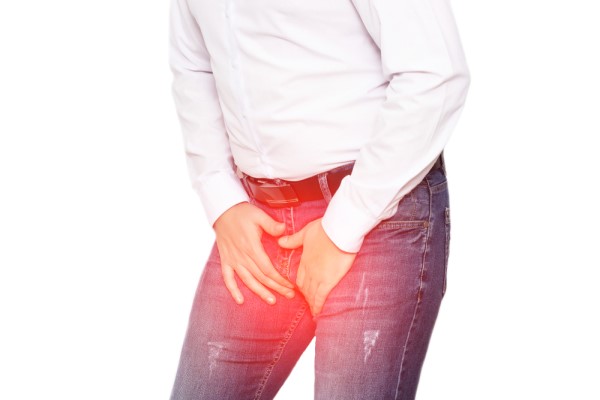What Causes Male Pelvic Pain?

If you feel pain between your navel and groin, this is pelvic pain. It could be caused by urinary tract infection, STD or prostatitis. Prostatitis is an inflammation of your prostate. If you have pelvic pain, do not feel alone. Many men suffer from this problem throughout the world.
Causes of pelvic pain
Pelvic pain can sometimes happen with other symptoms. Treatments can vary depending on the root cause of the pain. Therefore, it is necessary for patients to receive a full checkup if suffering from pelvic pain.
Urinary tract infection
UTI is when the patient has an infection in the urinary tract, including the bladder, ureters, urethra and kidneys. UTIs are common and can have other symptoms besides pelvic pain. These can include a burning sensation when the patient urinates, frequent urination, discolored or foul-smelling urine, chills or fever and pain in the sides or lower back. Doctors will treat UTIs with antibiotics.
Hernia
Pelvic pain accompanied by pain in the patient’s lower abdomen could indicate a hernia. A hernia will develop when a piece of intestine or tissue pokes through a weakened area in the muscle. It can form a painful, small bulge.
The pain may worsen when the patient strains the muscles by lifting heavy objects, coughing or laughing. General or laparoscopic surgeons will treat hernias to prevent further complications.
Appendicitis
The appendix is a small organ located on the right side of a patient’s body. Inflammation in the patient’s appendix can cause pelvic pain. Other symptoms may include fever, nausea and vomiting, loss of appetite and swelling in the patient’s lower abdomen.
If a patient experiences pelvic pain along with a sharp right pain in the lower abdomen, then they should seek medical attention as soon as possible. Surgery may be recommended.
Urinary stones
Urinary stones can form from a buildup of salt and minerals in the urine that a patient’s body cannot get rid of. Minerals, such as calcium, can clump together and turn into urinary stones. The stones usually only cause symptoms when the patient is trying to pass them. Pain in the pelvis and lower back is usual. Other symptoms include difficulty passing urine and blood in the urine.
Doctors might recommend pain medication for passing the stones. Other medicines can help break up the stones so passing them is easier. Large stones may sometimes require surgery to be removed.
Benign prostatic hyperplasia (BPH)
When a patient has an enlarged prostate gland from something other than cancer, BPH occurs. When the patient’s prostate is expanding, it will put pressure on the urethra. This may cause issues with urination and cause pelvic pain. The bladder muscles can weaken from the extra strain and cause an increase in symptoms. A doctor may recommend the patient change their lifestyle, try specific medications or undergo surgery.
When to see a doctor for pelvic pain
Though you might have occasional pelvic pain, it is important to see your doctor if you are unclear about the cause. Even if you know what is causing the pain, any changes in intensity or regularity may be a reason to see your doctor for a thorough evaluation.
Request an appointment here: https://eckhardtobgyn.com or call Donald Eckhardt Jr., M.D. , Kari Eckhardt W.H.N.P., C.N.M. at (346) 201-4716 for an appointment in our Tomball office.
Check out what others are saying about our services on Yelp: Pelvic Pain in Tomball, TX.
Recent Posts
A pregnancy doctor offers essential support when preparing for labor and delivery. Throughout the final trimester, patients benefit from expert monitoring, personalized birth planning, and guidance to ensure a safe delivery. By working closely with an experienced pregnancy doctor, families can approach the birth experience with greater confidence and clarity.As delivery approaches, a pregnancy doctor…
The first visit to a gynecologist is a proactive and engaging way to participate in your healthcare. This appointment focuses on your needs and goals regarding the healthcare surrounding your reproductive system. While feeling nervous is normal, knowing what to expect during the appointment can help calm your nerves.For many individuals, especially those attending their…
A pap smear, or pap test, is a common and important procedure used to screen for cervical cancer and detect abnormal cells in the cervix. Regular pap smears are a critical part of preventive healthcare for women, typically recommended starting at the age of 21. Understanding what happens during a pap smear can help alleviate…
A midwife is valuable in ensuring soon-to-be moms feel confident, comfortable, and informed during pregnancy and childbirth. With a focus on personalized care, midwives provide guidance, reassurance, and medical expertise. Welcoming a new child is an exciting time, but it can also be scary, and understanding how a midwife can enhance the birth experience can…


